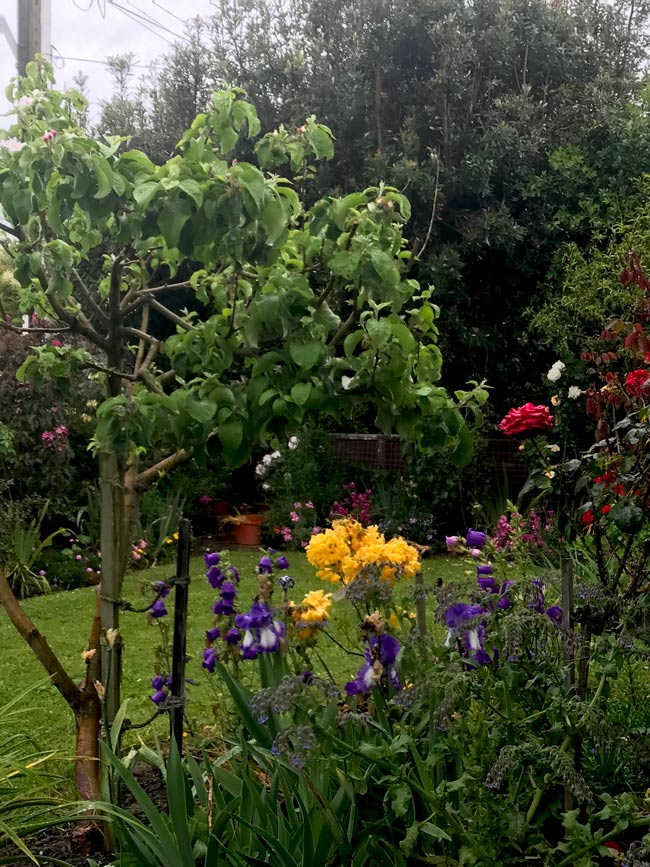Kia ora koutou, Covid 19 has changed our lives in all sorts of ways and I think we should expect more changes – I suppose we’ll resist them but change will win.
I don’t have to go very far back really to look at events that changed our lives. Women getting the vote, the war 1914–18, the influenza epidemic, World War 2, measles, polio, the financial crashes, earthquakes.
Think of the time called the Industrial Revolution which brought massive change. Trains brought a new life, new opportunities for thousands and thousands of working class and middle class people but it was pushed against very hard by the those who saw it as wrecking their comfortable lives – many of these the big landowners who saw, with a mixture of terror, anger and dismay, their captive work force from villages and towns, leaping on the trains and speeding off to the cities where they could get jobs in the new factories, work just as hard, but get a better weekly wage plus a whole day off per week. As well as not being on call from the Manor, they didn’t have to tip their forelock when the master or mistress deigned to walk through the village.
They didn’t have to lug large heavy cans of hot water up stairs so their ‘betters’ could bathe, they didn’t have to feel lucky if they were offered a go in the lukewarm bathwater when their mistress had finished. They didn’t have to get up at 3.30am to light the fires so Mistress and Master would have hot water for their baths, they didn’t have to carry heavy breakfast trays (porridge, bacon and eggs, toast, honey, teapot, cups and saucers), up three flights of stairs. They didn’t have to accept a pittance for this hard labour.
This great change also meant people could learn to read and not have to ask their master or mistress or the vicar or priest to read things to them which had meant nothing could be kept secret from their employers or the church.
Moving to the cities meant they could go to concerts, and later, films, they could enjoy music halls and gawk at shop windows full of elegant clothes. It meant they could read newspapers as they came hot off the press. Once the old treadle sewing machine got cheaper, they could learn to sew clothes themselves.
The Lords and Ladies, the Sirs and Madams, had to accept change whether they liked it or not. Then along came Mr Ford and cars were not confined to the upper classes any more. Working class people (mainly men) could own and drive a car just like the toffs.
And along the way came technology, the internet. I got my first computer in 1989. It was too heavy for me to lift on my own. Now I have a Mac which I can carry under one arm.
Now we’re facing huge new changes and naturally we don’t want them, we want to go on reading print books, going to concerts, theatre, films, but we might have to accept that our world has changed and nothing will ever be quite the same again.
New jobs will be created, robots will do lots of them but not all, education/teaching will change, going out to work will change, lots of jobs will be lost but new ones created in their place. This means learning new skills but we’re adaptable, we might rant a bit but we’ll cope.
And not all change is bad.
When I was on the AWF panel last Sunday I looked at my colleagues and thought if this had been 35 years ago, Josh would have been in jail, I might have been invited because by that stage I’d written Wednesday To Come but probably not because I was that terrible thing called a strident feminist and had too much to say for myself. I didn’t know my place. So that’s a no to Renée on the panel.
Ruby wouldn’t have been invited (what would she know? Too young, doesn’t meet the criteria, and for heaven’s sake, moreporks on a record? Dear me, no. And what on earth does Poneke mean?). And – hello? Have a panel where a man wasn’t the chair? How on earth would the poor things manage without a man in charge? So sorry Tina, you’d have been out too.
And the word Takatapui would not have been acceptable and it wouldn’t necessarily have been because of what it means… it would have been simply because it was te reo Maori. The people who chose panel members would possibly have been some of those who raged when Dame Naida used Kia ora as a greeting on long distance and toll calls in the late 1970s and all hell broke loose and not just from OWM.
(Please excuse the lack of macrons – I put the thing on but it had a fight with the acute over my name and the acute won). Aroha mai. Will get someone to be the peacemaker between them.
So change is not always bad. We might grumble a bit, we might have to learn new ways, we almost certainly will have to learn new ways, but maybe this time we will accept the inevitable a little more gracefully?
So on Sunday we had Josh, free to write and live and love, we had Ruby, free to live and love, to compose, write and play her cello, we had me, free to write, teach and grizzle, we had Tina, writer, teacher, who knew the questions to ask and who steered our little waka along the waters she so gracefully smoothed for us.
Smile darlings, smile…life is change, change is life.
Renée

